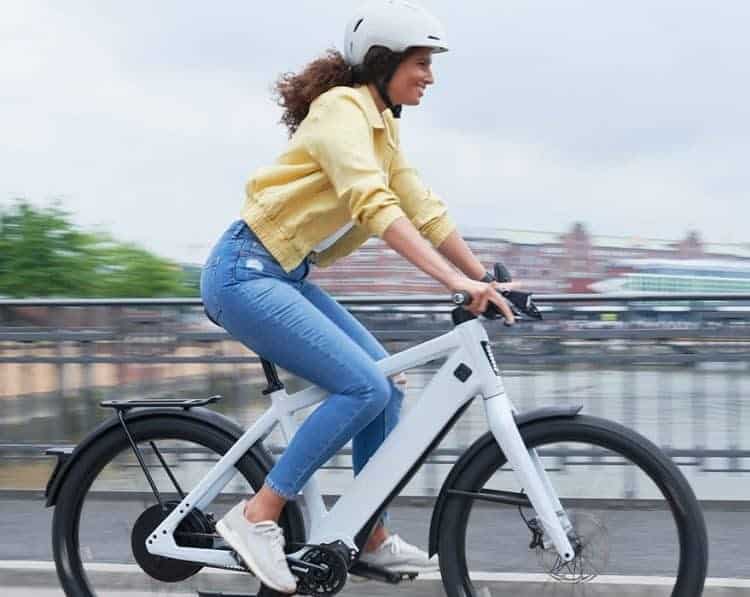Last Updated on November 18, 2021 by Igor Karni
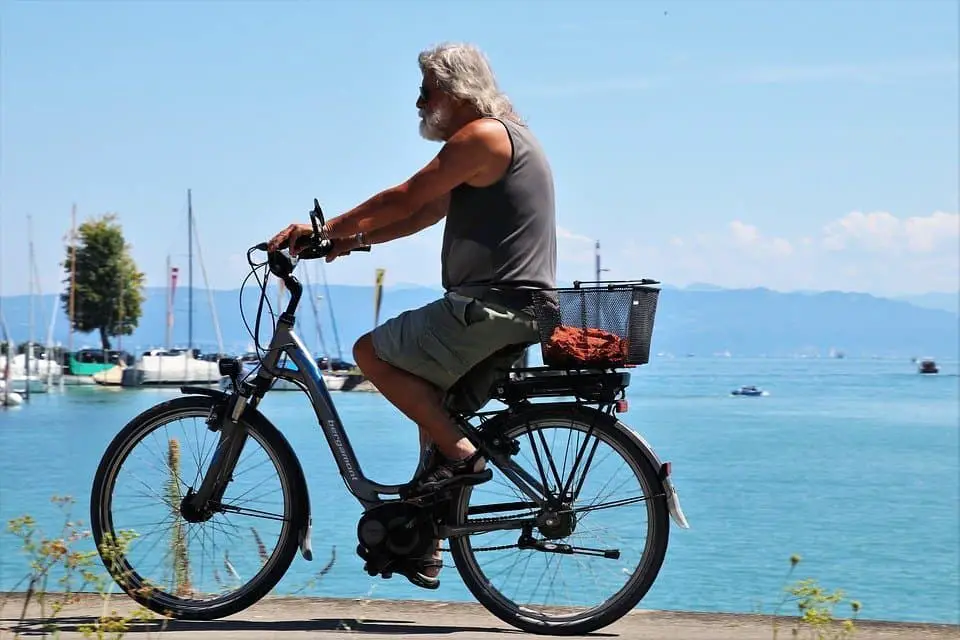
Fast, practical, ecological, and more and more attractive, the electric-assisted bicycle invades cities and countryside. Choosing the right model requires a bit of reflection.
Start with setting a budget
Similar to selecting a car, when choosing an electric-assisted bike, it makes sense to start by setting a budget. Entry-level models that cost under 800 euros are not usually recommended for intensive daily use. They offer neither the same comfort nor the same durability. Entry-level models are often heavier. Also, beware of unknown brands with a random or non-existing after-sales service.
Read also: How much does it cost to own an e-bike? And, What is the difference between cheap and expensive e-bikes?
Consider your usage
Depending on how you intend to use your e-bike, choose the adapted model: e-bike for urban trips, mountain e-bike, folding e-bike, cargo e-bike model to take your children with you …
Speed is limited to 25km/h
On the performance side, the electric assistance is limited to 25 km / h for all e-bike models. At the same time, but the engine power (up to 250 watts) can make the difference on the hills.
To go faster, the rider needs to have a good pedal stroke, or opt for a model called “speed bike”. Speed e-bikes can go up to 45 km / h and are, therefore, considered motor vehicles, which then require insurance, helmet, and registration.
Read also: What is the difference between a regular e-bike and a speed e-bike? And, is it legal to derestrict electric bicycle speed?
Electric bike model
The first essential rule before choosing your model: know what you will use your e-bike for. For more comfort and use in the city, you may want to favor an electric bike with a straight position, thanks to a high handlebar. This will allow you to see far ahead while keeping your arms relaxed.
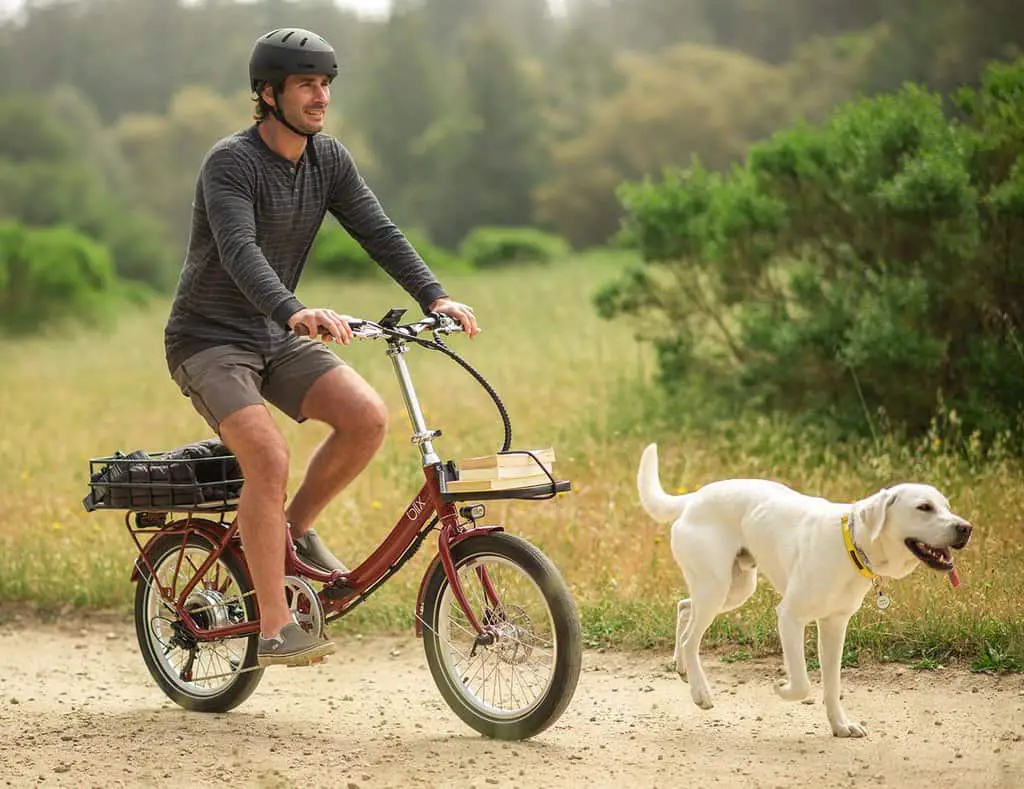
In recent years, more versatile commuter, cross-country, and sports models have emerged. Such models often imply a more inclined position to combine pleasure and practicality during commuting.
These categories of electric bicycles generally include practical accessories, such as the luggage rack or built-in anti-theft device. Ideal for daily or frequent riders.
Now brands offer many models that adapt to all types of usage and all types of leisure. Models are becoming lighter and often do not include any accessories. Some, for example, have very thin tires, which are well suited for road cycling. These e-bikes will delight sports enthusiasts and thrill-seekers.
Read also: Check out reviews of popular models of electric bikes.
Electric battery
Another central point in choosing your electric bike is the battery. E-bike battery is rechargeable in a few hours from a conventional power socket. It usually weighs on average 3kg and is sometimes removable. The removable battery will help transport your e-bike.
There are three most common types of e-bike batteries.
- Lead-acid batteries are cheaper, but rather heavy and more sensitive to climate variations.
- Nickel-cadmium batteries are lighter, but are the ones that suffer from a significant memory effect. Their performance may be affected if they are not fully discharged before recharging.
- Finally, lithium batteries appear as the most optimal, but they are also the most expensive.
For each battery type, there are different models. Depending on the model, you will have more or less power and more or less autonomy. For example, a 36 volt / 400 amp battery currently allows sufficient electrical assistance for several hours of riding.
Read also: What is the difference between e-bike batteries? And, How far can e-bikes go? What is the e-bike range?
Choose easily rechargeable battery
Another very important element: the battery. Battery autonomy usually varies between 50 and 100 km. In most cases, the battery is removable. It can be taken to the office or home to be recharged via a simple 220 V plug. It takes 4 to 6 hours per charge on average.
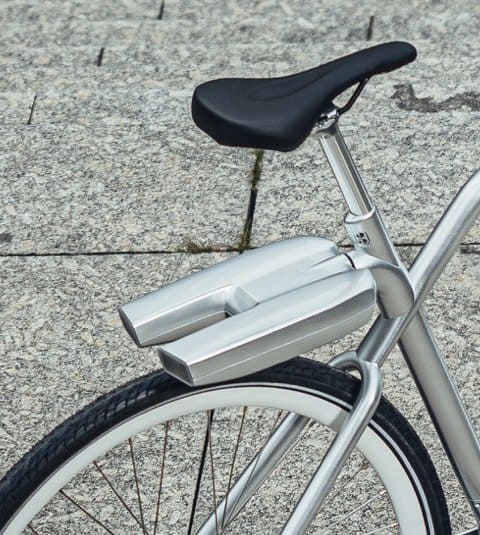
Do not forget also the anti-theft protection aspect of the bike, essential in the city. Some manufacturers even offer GPS tracking and a guarantee in case of theft.
Finally, do not neglect to test ride your selected model before buying. It makes a lot of sense to feel comfortable before making your e-bike – your new companion on workdays and weekends.
Electric motor
The location of the centerpiece of any electric bike – the motor – is also paramount. Before 2010, motors were mostly located on one of the wheels, as it was easier and less expensive to install and manufacture.
When a motor is installed on one of the wheels, the feeling is comparable to that of a push in the back. The difference in power between the two pedal strokes is not very noticeable. The choice of the wheel, on which the motor is placed, is of little importance, especially if you drive in town.
If the road is not that even and flat, the rider may feel a certain lack of traction when the motor is located in the front wheel.
The sensations observed on an electric bike, when the motor is installed in the middle of the bike (pedal section), are more similar to those on a conventional bicycle. In more recent e-bike models, the motor also has a system of sensors, which measure speed, pressure, and rotation. These sensors allow for a better adaptation of the motor power output to the dynamics of the cyclist.
Read also: Front, mid-drive, or rear e-bike motor. Which one to choose? And, What is the difference between e-bike motors?
Motors are not all the same
Pay attention to the type of motor. The most basic motors are integrated into the front or rear hub. Those models are not always the most advanced. While mid-drive motors (Bosch, Yamaha, Piaggio …) help to have a more comfortable ride. Their pedaling force sensor provides immediate and progressive assistance.
Michelin has also introduced, with Wayscral and Norauto, an original system of removable motor integrated battery for a bike “two in one”, lightweight, practical and affordable.
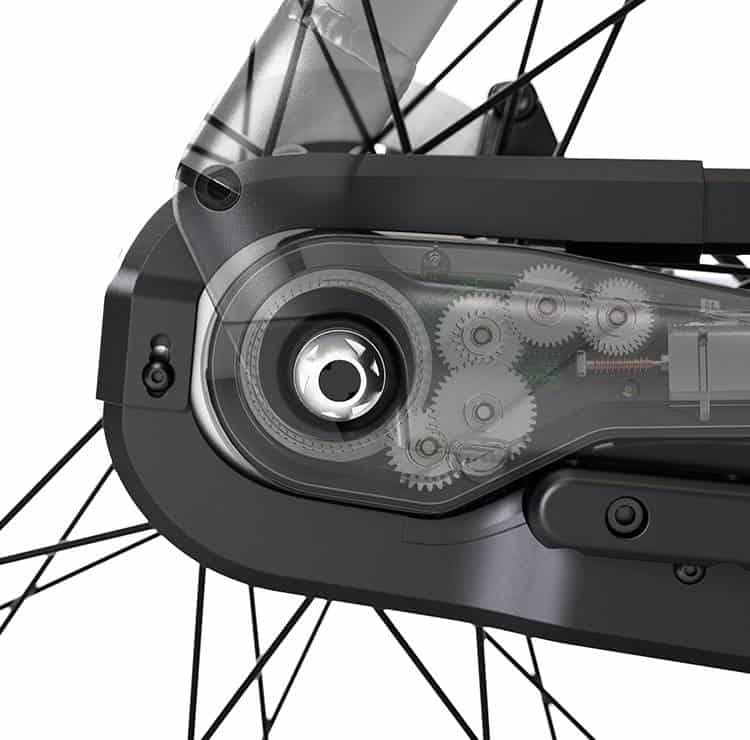
Note that, for example, in France, as well as in many other countries, legislation limits engine power to 250 watts and also limits electric assistance to 25km / h. Separate regulation applies to speed electric bikes.
Electric assistance
For the type of electric assistance, the cyclist has the choice between two general categories.
“All-or-nothing” electric bicycles take into account one single factor: the presence or absence of pedaling. This results in constant electric assistance, which is adjustable from the control console. Such control console can be fixed or removable, LEDs or digital. There are many different models. The control console allows the cyclist to adapt the assistance of the electric motor according to one’s needs and desires.
Improved electric assistance on higher-end e-bike models provides “proportional” assistance. This is determined by several sensors, which evaluate the pressure exerted on the pedals and therefore the level of difficulty in which the rider is. It, therefore, allows for a better reaction of the motor and lower energy consumption.
Read also: How to use gears on an electric bike (mechanic and electric)? And, How to switch electric assistance levels on an e-bike?
Shifting gears
Another area in which the e-bike cyclist would expect speed and adaptability is changing speed and shifting gears. Essential to know that there could be two types gearshift on an electric bike. One is done by derailer, which is usually used in sporty models and allows for more efficiency.
On e-bike models that are more adapted to the city, this change of speed is usually integrated and is done by gears. This type of gearshift provides the possibility to shift gears without pedaling.
This is a practical solution that helps avoid any derailment of the chain and protects it. Coupled with the mid-drive motor, this system may even require a rider to stop pedaling, which is certainly not the most convenient experience for the rider.
Choose your e-bike services
Inexpensive loans
The price of an electric bike varies, depending on the model of your choice. Most offers fall into the category of 700 to 2,500 euros. These are not small amounts, but the advantage is that you can now borrow at very low rates. Check with your local bank to see if they have special loans for electric bikes. There is a good chance that they have those available. If not now, they will have soon. Banks are catching up fast on providing proper financing options for the fast-growing Belgian e-bike market.
Examples from several banks in Belgium. An e-bike loan from KBC, you will pay 0.80% interest on a loan. For a credit of 1.500 euros repayable in 2 years, you will have to repay 63.02 euros per month for 24 months. This means that you only have to pay 12.49 euros in interest, in addition to the borrowed capital. At Belfius, the rate of a bicycle loan is 0.99%; with Argenta, it amounts to 1.49%. This would result in loan repayments of 63.14 euros and 63.46 euros respectively.
Read also: Best e-bike financing options in the USA, the UK, Canada, Australia. And, Rent, buy, or lease an e-bike?
On the road assistance
What happens if your e-bike breaks down, while on the road? With a conventional bike, most problems, in general, can be easily solved. With an electric bike, which is much heavier and is more complicated to repair, this is less obvious.
This is why insurance companies and helpdesks have developed assistance packages. For example, for 45 euros per year, VAB guarantees to single cyclists (75 euros for couples and 99 euros for whole families) 24/7 assistance throughout the Benelux if they have a flat tire, a flat battery, or another vehicular problem. If a VAB technician would not be able to help you on the spot, they promise to take you to your destination.
Theft insurance
As an electric bike is expensive, it may be a good choice to have it insured against theft. With Allianz, for example, this insurance costs around 55 euros a year. There is a condition related to insurance refund: you must be able to prove based on your purchase invoice that your bike has a padlock and that it is attached to a fixed object.
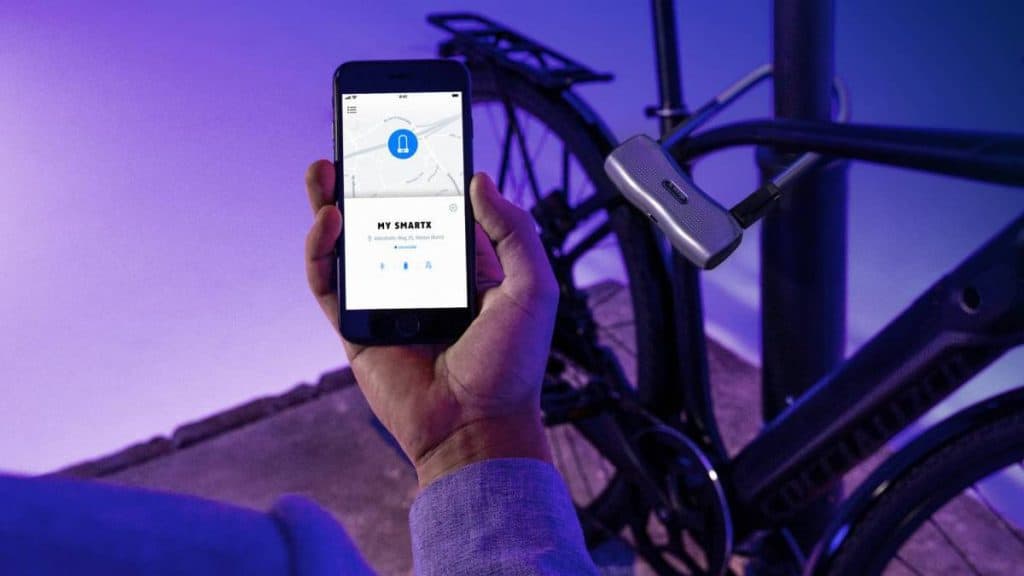
It also makes sense to take into account that many insurance companies apply an age limit on the e-bike for the first insurance contract against theft. The age of the bike can vary from a few months to 3 years. However, it will be possible to extend the contract after the first term.
Read also: How to select insurance for your e-bike? And, Does it make sense to buy specialized insurance for an electric bike?
Liability insurance
If you have an electric pedal-assisted bicycle up to 25 km / h, you do not have to take out insurance (in Belgium). Still, if you cause an accident, you will be held responsible and you must compensate the person(s) involved for bodily injury and property damage.
This liability insurance only covers the damage you cause to others, but you may also suffer damage as a result of an accident. Do you also want to be insured against these? In this case, you may want to look out for an additional ‘Personal Damage’ policy.
Personal injury
This liability insurance only covers the damage you cause to others, but you may also suffer damage as a result of an accident. Do you also want to be insured against these? In this case, you may want to look out for an additional ‘Personal Damage’ policy.
Leasing
You can also opt for the absolute comfort of using your e-bike by taking on a leasing scheme. In this case, you will pay a fixed amount for 36 months, for example.
It will include bike financing, insurance coverage against theft and damage, 24/7 assistance, and annual maintenance. At the end of this period, you will have the choice: to buy the bike according to its residual value or to return it to the leasing company.
The advantages
Of course, buying an electric bike is not just about costs and risks. There are also many benefits, for example, quick and cheap travel. Charging the battery will only cost you a few cents. For the rest, you will exercise. Furthermore, if you also use the e-bike to commute between your home and your place of work, you may be entitled to a bike allowance.
Read also: Here is why e-bikes are really cool. And, How to select the best city e-bike (with examples)?
In 2019, employers in Belgium can pay up to € 0.24 per kilometer to their employees without the latter having to pay social security charges or taxes for this purpose. In other words, your employer will have paid back your bike of 1,500 euros as soon as you have driven 6,250 km with it. Given 220 working days a year, that would be 28 km a day, or even 14 km a day if you spread your efforts over 2 years.
Let us know how we are doing! Have another question or a recommendation for us? – reach us via this contact form.
Igor is a sustainable mobility and green energy advocate. His mission for Easy E-biking is to help make electric cycling simple, practical, and fun. Follow him on Facebook and LinkedIn.




